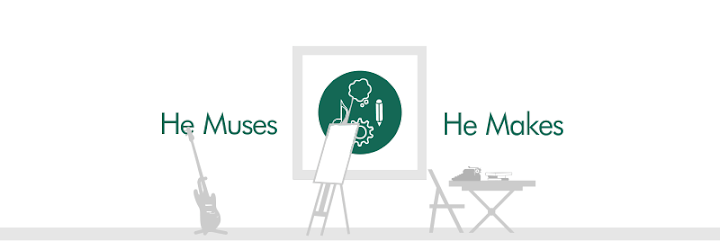
This originally appeared on misteragyeman.blogspot.com on September 2, 2014.
What’s so funny about peace, love and understanding? It doesn’t stand a chance, unless we all get some at once. Kind of like the Swedish with their Dagen H.

In every other scenario, the first peaceful, loving, understanding person gets misunderstood. Caring friends and family probably go, “Oh, that was a joke!” while shepherding our friend into a corner to advise them to drop the Doormat persona.
Our specie’s story is largely told in struggle. We kill to survive. We’re always fighting: disease, the elements, gravity, time. We make buildings to shut out the wildlife – the neighbours, even. We admire people who cheat age and death. Where would the world be without conflict? Change is always a triumph of new over old. It seems part of natural law that the need for change must first dawn on a minority, and have its effects transmitted forcefully to the rest. Even non-violent movements communicate dissatisfaction. Esperanto, for all its inspiring naiveté, couldn’t go where Newspeak went. So you can’t really ask for change, without asking for struggle.
“Riddelum, bridlelum, into the fray” – I found an essay on Tagore’s work and this line jumped out at me. We do approach war with a lot of vim. A quiet meadow is nice in small doses, but after a while you begin to see why the locals spend Saturdays in the city. When there’s no war, young people go bungee jumping to compensate.
People look sheepish now when you mention the Arab Spring. First the Libya bombings, then Egypt’s Al-Sisi régime, and now the Islamic State. Thing is, how many of us looked ahead for an end-game? The media is taking another look at slacktivists like me, and the judgements have been sharpened by experience and hard data. Perhaps it’s not so bad when your click somehow translates into a cure for cancer, but that’s different from aiding a revolution on Twitter. Without the physical investment, how many of us check the facts – what is happening; what kind of change is promised; what’s the damage? I know I didn’t. I saw the infographic, and I set my jaw. My Like would stand with the Iranian youth.
But now we’re realizing that slacktivism has no real value, unless the issue actually benefits in a concrete way from attention in the media space. And even then, it’s murky – I really thought the Kony campaign would do something. But then there’s the next level. There’s the anti-Soviet Mujahadeen, and the ISIS situation. Sometimes we support an armed struggle and they go off and kill someone they didn’t mention. Then what? I wouldn’t presume to know what it took to stand in the front-line at Tahrir Square or Tiananmen, but what about the guys at the back? What keeps them angry?
Recently I saw Soft Vengeance, a documentary of the early ANC. They were unified by a sort of beatific naïveté. They thought very hard about the culture of the movement – all the while they were dealing with beatings and killings. Their hand signal reminds me of the Boy Scouts – but they proudly displayed it as they climbed into police vans. But then the new hard school came up, with the strong fist pumps and the faux leather to match. Life just hard.
That’s it, isn’t it? This world is hard to figure out.You keep the big picture in mind, you sacrifice lives. You lose sight of it, people get killed. Power and responsibility, you know? So you really don’t need instinct in the backseat, going “Is there blood yet?” Shut it up. Life is better without it.